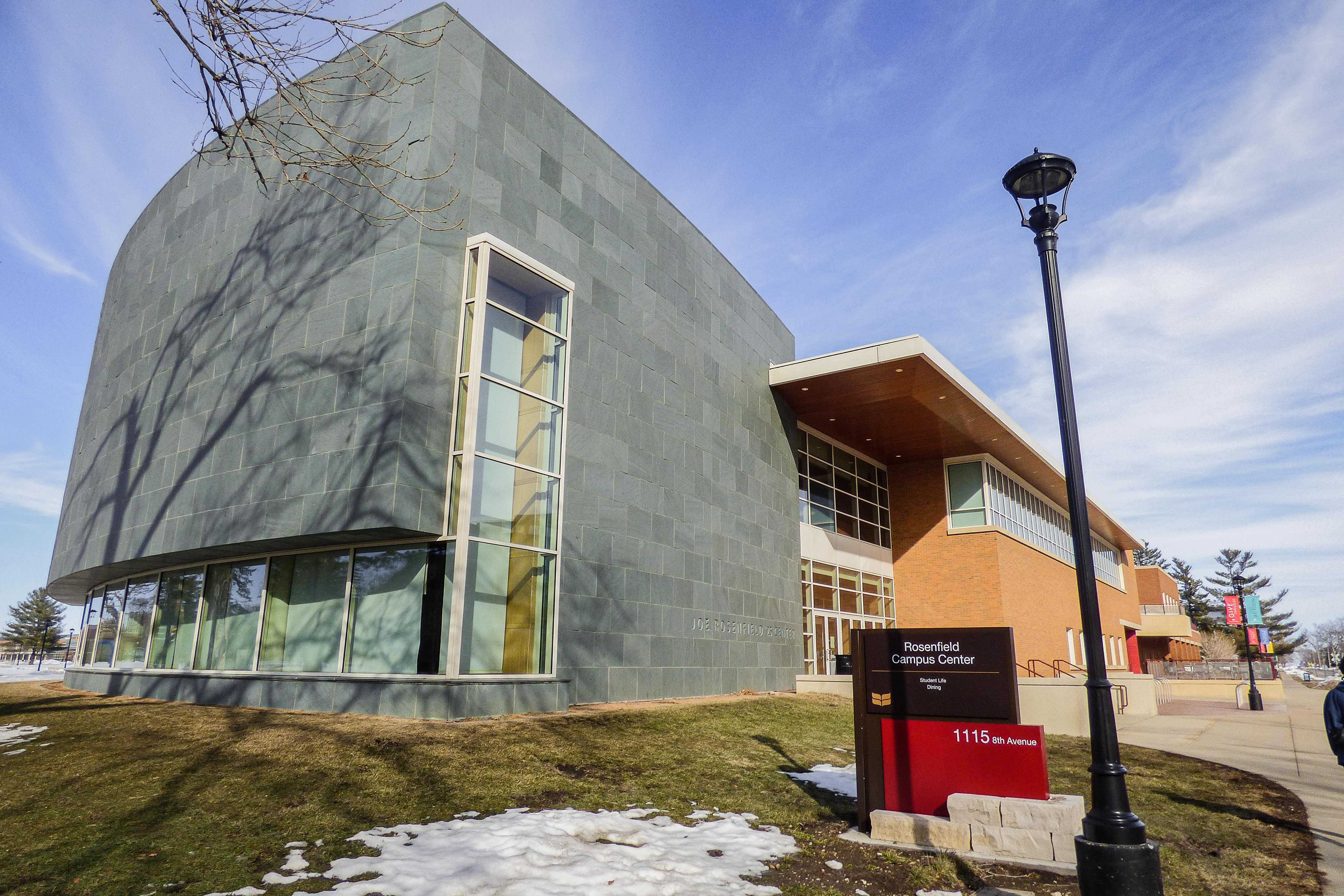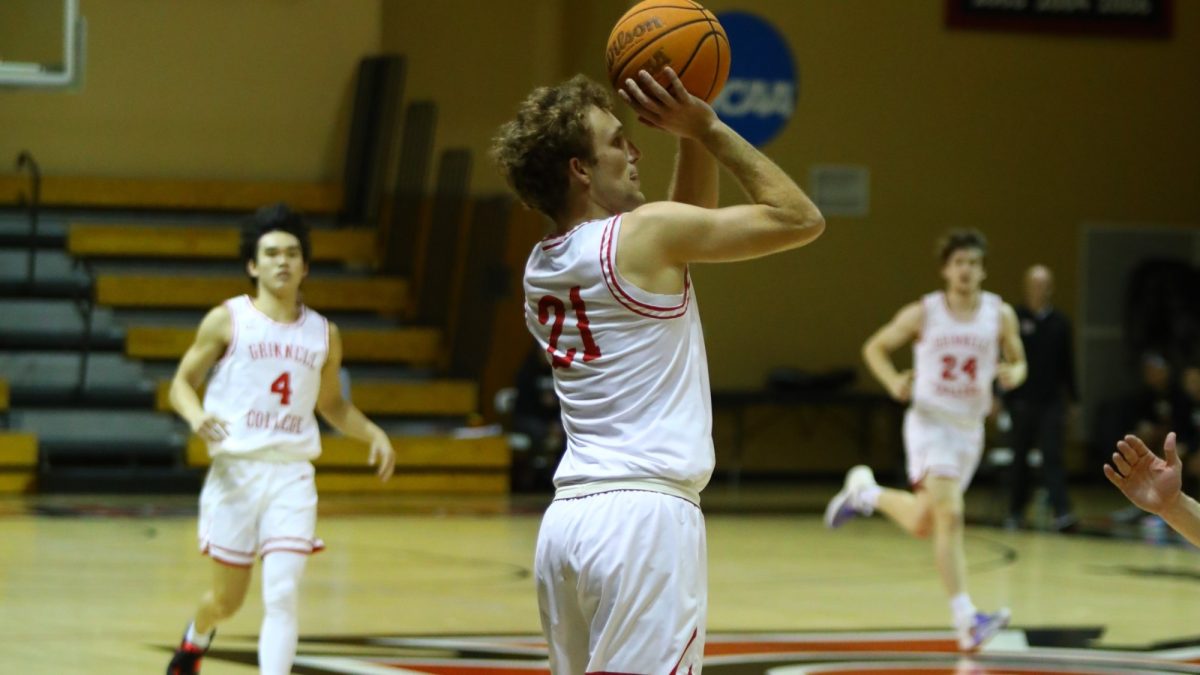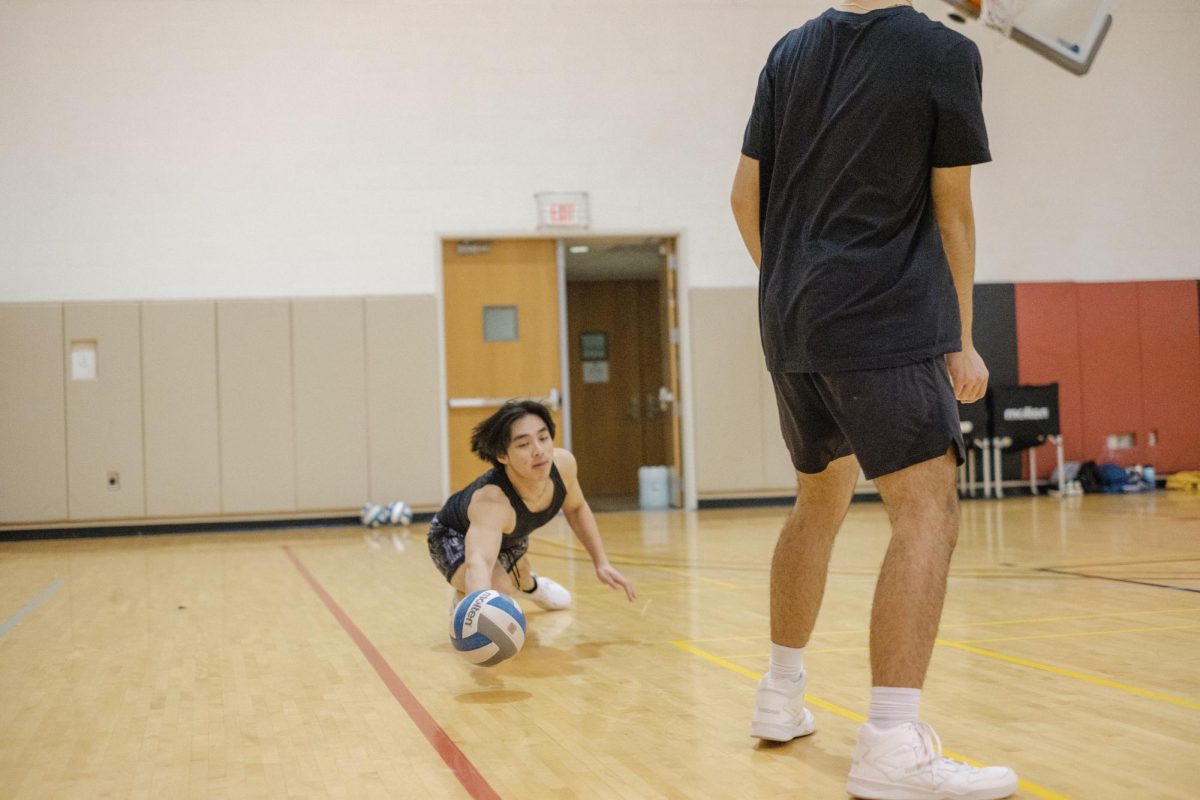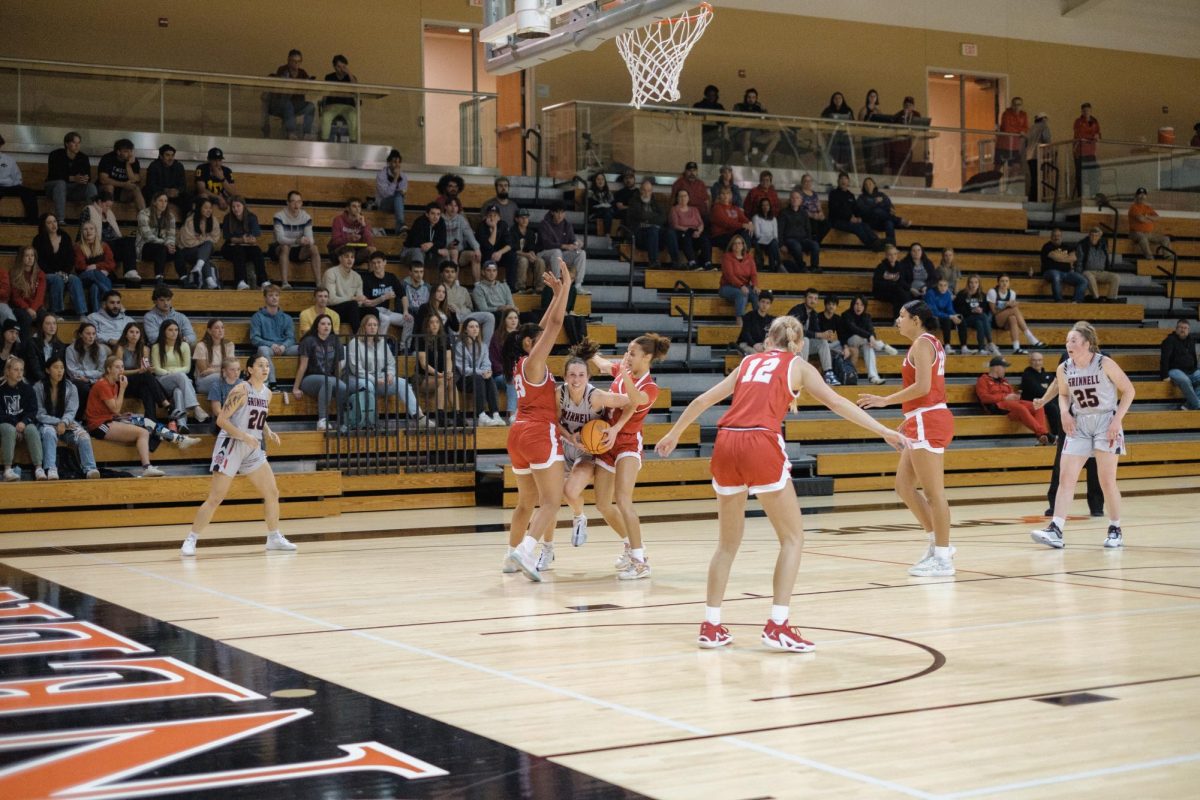The Grinnell College administration is separating the Division of Student Affairs (DSA) from the academic affairs division in an effort to allow for longer-term planning. It remains unclear, though, what concrete impact the changes will have, and students involved in disciplinary processes are wondering whether the new structure will do anything to fix the problems they have encountered.
The DSA, which includes Student Health and Wellness, Campus Safety, Center for Religion, Spirituality, and Social Justice, Intercultural Affairs, Residence Life and International Student Affairs, will now be independent of the dean, who oversees academic programs and faculty, the libraries, the registrar and other academic services. The change was announced by President Anne Harris in a March 8 email.
Several administrators at the top of the division are accordingly receiving new titles. Sarah Moschenross will continue to lead Student Affairs, now as vice president for Student Affairs. She will report directly to Harris, rather than Interim Dean Elaine Marzluff. Ben Newhouse, previously the dean of students, will now hold the title of associate vice president of Student Affairs and take on a greater role in residence hall renovation and construction. Maure Smith-Benanti, previously the dean for diversity, equity, and inclusion, will now have the role of assistant vice president of Student Affairs and dean of inclusive initiatives.
“The shift will allow me and my colleagues to think more strategically about the co-curricular experience at Grinnell,” Newhouse wrote in an email to The S&B. Among his goals will be to “create a greater sense of belonging, invest in the residential experience, and partner with students to enhance campus life overall.”
According to Harris, the changes will allow Student Affairs staff to have a more long-term focus.
“I had the honor of serving as dean, and so really experiencing that first hand, and I can tell you that, while I was able to keep operations going [in Student Affairs], there really wasn’t the bandwidth to do strategic work, right – new programs, new ideas, things like that,” she said.
Another reason for the change, said Harris, was the disproportionate size of Academic Affairs relative to the College’s other divisions – 220 faculty members, 138 staff and before the separation, 65 additional Student Affairs staff members.
“The weightiness of that structure, those two huge divisions in one place … it was one of those moments where I realized there’s something in the structure that doesn’t allow for the movement,” Harris said. “Part of it is that it’s so intensely rich with so many people and so much expertise.”
Despite Harris’ aim to improve the division, students who have interacted with Student Affairs remain skeptical that the changes will benefit them.
“I think that Ben Newhouse isn’t the right person to be continually promoted to different positions and staying at the College because I think that while he’s trying to be respectful to students, a lot of times his own desire to be right or protect the College gets in the way of students’ interests,” said Emily Louden `22.
Louden interacted with Newhouse after initiating a Title IX complaint against another student for sexual assault. An external adjudicator found that the student was not responsible, but Louden thought that Student Affairs staff did not handle the appeal fairly.
“I think that they crossed over the line [of neutrality] when Ben [Newhouse] said that he thought the adjudicator made the right call,” said Louden. “That made me feel like I had been doomed from the start when I had been going through the process, because if he thought I was in the wrong, then how could I trust that anything had gone according to policy or process?”
Newhouse wrote that he has not been involved in making decisions in the Title IX process, neither in the initial fact-finding nor in the appeal process. According to Grinnell’s policy on sexual misconduct, only the external adjudicator can make findings of fact and interpretations of College policy, and appeals can be heard only on the basis of procedural errors or previously-unavailable evidence.
I think that while [Ben Newhouse is] trying to be respectful to students, a lot of times his own desire to be right or protect the College gets in the way of students’ interests. – Emily Louden ’22
“It is my role … to affirm the adjudicator’s finding and communicate the finding to the respondent and the complainant,” he wrote.
C’Erra Houston `21 also feels she was treated unfairly by the Student Affairs staff. In August 2019, during New Student Orientation, Campus Safety initiated a conduct case against her, and she admitted to violating College policy to avoid a search of her room or involvement of police, she said.
As a result, Student Affairs “kicked me and three people of color who are low income who live eight plus hours away off campus,” Houston said. “Sarah Moschenross looked us in our eyes and she asked if we had a place to go, and we shook our heads no, and she said ‘You’ll figure it out.’”
“For a week, I slept on friends’ couches. I had $20 in my account,” Houston said.
Moschenross declined to speak with The S&B for this story.
Houston said that the punishment for College policy violations was disproportionate. “Those are the people who are supposed to keep me safe, but I will never forget that they made me homeless for a week,” she said.
Both Houston and Loudon described lack of student input and recourse in decisions about student affairs as key problems.
Harris affirmed the importance of giving students recourse if they think a decision has been made incorrectly. “Recourse is incredibly important to me, that everybody at the institution understand their recourse. The usual way is to go up and up the supervisor line to a higher and higher supervisor,” she said. “The other option is to talk to the Ombuds – I mean, Chinyere Okabiala is incredible, and Ombuds is confidential, and she sits outside the institution. In other words, she doesn’t report to me.”
Those [DSA] are the people who are supposed to keep me safe, but I will never forget that they made me homeless for a week. – C’Erra Houston ’21
The changes to DSA in particular, though, were not made in consultation with students.
“Among the student population, I don’t recall really discussing structure with students, it was really more about student experience,” said Harris. “I will say the lived experience in the residence halls certainly made me think … it would be very, very good for us to build some strategic room beyond just operations in our structure.”
Harris cited the upcoming Downtown Student Residence construction project and the renovation of existing residence halls as the key areas where she hopes the new structure of the DSA will better serve students.
































































